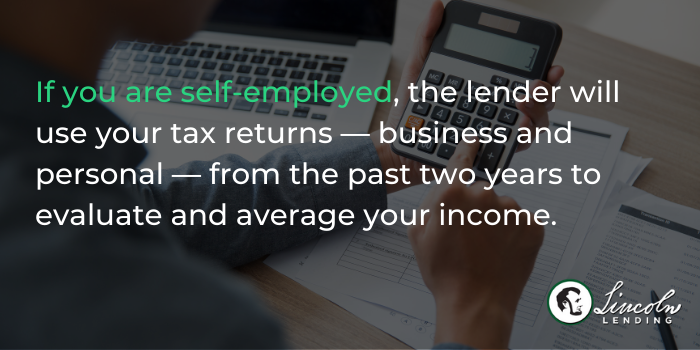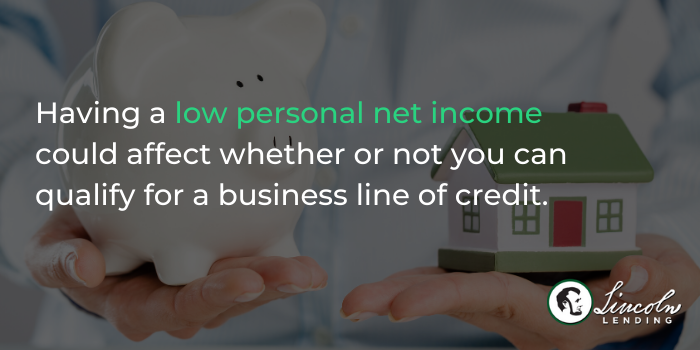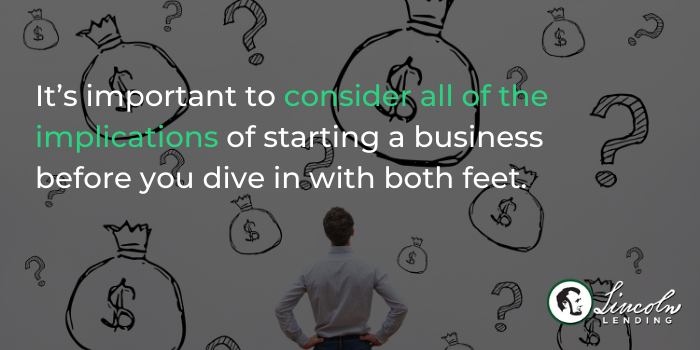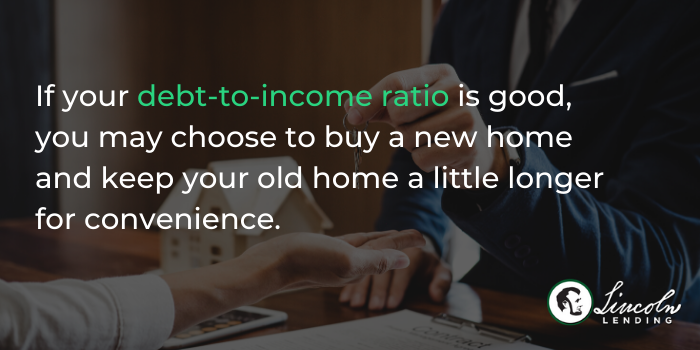If you own a business or are self-employed in Oklahoma, your requirements to qualify for a home loan are different than for someone who is traditionally employed. The stability of your business and personal expenses are key considerations for home loan approval. In this article, we’re sharing everything you need to know about preparing for and securing your ideal home loan.
How Long Do You Need to Be in Business?
If you are self-employed, a lender will use your tax returns — business and personal — from the past two years to evaluate and average your income.

Before qualifying for a loan, most borrowers must be self-employed for at least two years. If you have excellent credit or can make a substantial down payment, you may not need to wait as long. However, the general rule of thumb is for lenders to use two years of tax returns.
Other than requiring two years of tax returns, the loan process and terms will be the same for self-employed borrowers as they are for any home loan candidate. Like all prospective borrowers, you will need to meet minimum credit score and down payment requirements.
How Your Personal and Business Expenses Overlap
If you’re debating whether you should write off cars, boats, or other debts as business expenses to save on your taxes, first consider how it could affect your home loan eligibility. If you write off too much, you could end up with insufficient income to qualify you for a home loan.
The Impact of “Toys” on Your Cash Reserve
If you’re preparing to buy a home, it’s wise to hold off on large, non-essential purchases until after you receive pre-approval on a loan. (This is true for everyone, not just self-employed folks!) Your monthly payments for “toys,” such as boats, jet skis, RVs, or a new car increase your debt obligation, which can negatively affect your ability to qualify for a home loan.
Line of Credit Qualification
Many business owners rely on a business line of credit for liquidity to cover operating expenses. To qualify, business owners need to provide lenders with their company’s revenues and profits, financial ratios, professional experience, and personal credit. Having a low personal net income could affect whether or not you can qualify for a business line of credit.

Just like any loan, lenders believe that a borrower’s potential for defaulting on a line of credit increases with his or her debt level. Lenders need to feel confident that you will be able to repay your debt even if your business struggles financially. If your personal expenses are too high, you may have a hard time qualifying for a business line of credit.
What Specific Issues Should a Business Owner Consider?
As you begin your house hunt and start saving for a downpayment, keep the following considerations in mind.
Tax Write-offs
Tax write-offs may help your business reduce its tax burden, but it also affects your debt-to-income ratio. Write-offs lower your income, which may make it more difficult to qualify for the home loan that you want.
Business Profits Don’t Always Help You Qualify
The average business struggles to make a profit for the first few years. When the business does take off, the owners often think that now they will qualify for a home loan. However, home loan qualification is usually based on the average of your two most recent years of income.
The lower income amount in your start-up year(s) can significantly reduce your average income, making it difficult to secure the loan that you desire.
Gross Receipts Don’t Equal Income
Business owners tend to see gross receipts as their income, but that just isn’t the case when applying for a loan. A business owner may claim to have made $100,000, but that may be gross sales, not net income.
Conserve Your Capital
Some business owners dump all of their cash back into the business. While it may help the business survive, it can also make the owner short on money for down payments, closing costs, moving expenses, etc.
The good news is that you are allowed to use money from the business account for your home down payment as long as your accounting professional verifies that pulling cash from the account won’t be detrimental to the business.
Thinking About Starting Your Own Business?
Entrepreneurship gives you the freedom to follow your dreams and achieve new goals. However, a start-up can also affect your other dreams — like homeownership — for years to come. It’s important to consider all of the implications of starting a business before you dive in with both feet.

Financial
Every business is different, but it is important to realize that most new businesses are not profitable right away. Legal and accounting fees, inventory purchases, employee expenses, and countless other expenditures will draw down your cash.
It simply takes time to get enough customers and revenue to make a new business profitable. Keep in mind that it may take a few years for your finances to become stable enough to qualify for a home loan, but you will get there!
Work History
If you quit your “normal” job to start a business, it will likely impact your work history when qualifying for a loan. In most cases, lenders require that your business t be in existence for a minimum of two years before lending you money. Your lender will want to see the documentation for two years of stable, solid income. They will also want to know that you have a strong, positive income in the current year-to-date.
Timing
When possible, it is best to get settled into your new home before making any major career changes. Consider starting your new venture on the side and use your income from your day job to qualify for a home loan. As you increase your cash reserves and build a customer base, you can choose when the time is right to leave your traditional job. By the time you go all-in on the new business, you’ll have a thorough understanding of all of your homeownership expenses.
What Should You Do with Your Current Home When Buying a New One?
Transitioning between homes takes some planning. Do you know all of your options?
Sell Your Current Home and Close on New Home Simultaneously
Most people sell their current home at the same time that they buy a new home. They will often close both deals on the same day. Usually, buyers need the equity in their old home for the down payment on the new one. The closing is generally set up so that you will sell your old home a few hours before signing the paperwork on the purchase of your new home.
Sell Your Current Home Before Buying the New Home
Some people sell their current home prior to buying a new one. This may happen when your home sells more quickly than you expected. It could relate to the timing of your move for a new job or construction delays in the new home. Or, perhaps the owners of your new home just need some extra time before moving out to allow their kids to finish a school year. In these cases, customers may choose to live with family or friends or rent a house or apartment until they move into a new home.
Keep It a Little Longer for Convenience
If your debt-to-income ratio is good, you may choose to buy a new home and keep your old home a little longer for convenience. For example, if you want to make repairs or improvements to the new home, you may choose to live in your existing home until the upgrades are complete.

As a business owner, remember that it affects your debt-to-income ratio when you keep a house and buy another one. If you write off too much, then you may not show enough income to qualify for keeping two homes.
Keep It as an Investment Property
Investment properties can also impact your debt-to-income ratio. However, if you keep your current home as an investment property, you can offset your monthly payment with the rental income. You can use a new rental agreement, and with most loan programs you would be able to use 75% of the rental amount as income. Your mortgage lender can calculate options and help you with the information you need to make a smart decision.
Here’s How Your Mortgage Will Be Different
Qualification requirements for business owners are different than those for individuals or couples employed by someone else. Here are the key differences:
W-2 Employees
If you are the average full-time employee who fills out a W-2 form for your company, a lender can count your gross income to qualify you for a home loan. You should be on your current job for at least 30 days. Also, you will typically need a two-year work history. If you are employed part-time, you must have a two-year history at the same employer to establish your income level.
Business Owner
If you own 25% or more of a business, you must include it in your income calculation. Owning a business can boost your personal finance if its income is positive, or it can hurt your personal finances if the business had negative income.
Your lender will use your net income rather than gross income for your loan qualification. However, a business owner can also take adjustments, such as depreciation. Business owners can maximize their income by claiming all income, even cash business, when planning a home purchase.
Why Choose Lincoln Lending?
Lincoln Lending has a wide variety of experience relating specifically to home loans for self-employed borrowers. Here are a few scenarios we’ve seen:
Too Many Tax Write-Offs
We’ve had self-employed clients who write off too many expenses to reduce their income tax. Unfortunately, this impacts their debt-to-income ratio. We usually ask them to share their last two tax returns with us so we can calculate how much income they need to show the next year in order to qualify for a loan.
Registering Your Business Early
Sometimes, we have clients that come to us knowing that they will need two years of business history to qualify for a loan.
In this case, one of the most important things that the business owner can do is to register the business with the Secretary of State as soon as possible. This establishes a start date for the business. The start date is essential because the rules say you must be in business for two years in order to use income to qualify for a loan. It doesn’t say you need two years of income on tax returns. .png?width=700&name=Lincoln%20Article%20Graphics%20(14).png)
So, although the borrower may only claim 18 months of income on his or her tax returns, he or she can still qualified for the loan because the business had a two-year history with the Secretary of State.
Loan Options
There are two unique ways that we may be able to use to help business owners qualify for a home loan:
- Bank Statement Loan - Self-employed folks who write off too much may qualify for a bank statement loan. If they can show 12 months of bank statements with regular deposits, we may be able to use those deposits to calculate an average income instead of using net income on tax returns.
- Asset Loan - If you have a lot of liquid assets (i.e. money in the bank, 401k, mutual funds, etc.), then there is a loan program that allows us to use those assets to calculate income.
Personal Experience
Kelly Pensoneau, the president of Lincoln Lending, has purchased two houses as a self-employed business owner, so he understands all of the ins and outs. For his first home, he used a co-signer because his business was new and the income was limited. Later, when the business was more established and making money, he could have refinanced the loan without the co-signer, or he could qualify for another house. He chose to qualify for another loan and purchase a second house.
Planning
Ideally, business owners should meet with a lender two years before they want to buy a house. If that isn’t possible, know that you will need to prove two years of business existence to qualify for a home loan.
It is also good for business owners to meet with a lender prior to the next tax season to make a plan for how much to write off or not write off.
Business owners trust Lincoln Lending because of our experience, knowledge, and understanding of the ins and outs of being a self-employed business owner.
You can take advantage of a no-cost, no-obligation coaching session to review your specific situation and all of your available options. To schedule a meeting, just click the image below.



